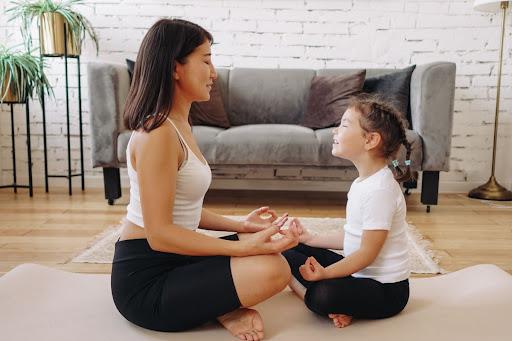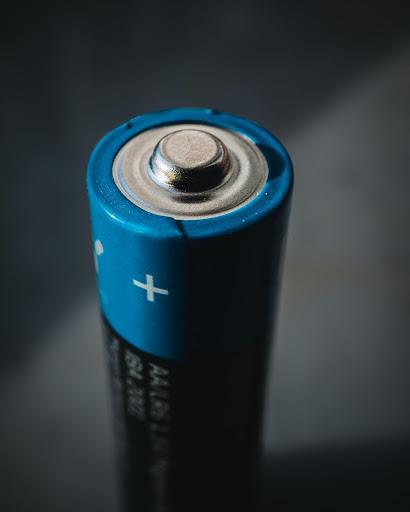Editor’s Note: Ask JLove, is a recurring series by Jlove, a parent guide and co-founder of Mercury Coach. Please comment below this article to have your questions answered by JLove.
———————-
In my last article, I shared three key things that lead to amazing outcomes for you and your kids. They were:
- Love your life.
- Understand the needs for psychological well-being.
- Master your mind.
Today we’ll dive deeper into LOVING your life–Why it matters, what it means, and how to get there.
YOUR EMOTIONAL STATE AFFECTS YOUR CHILD’S EMOTIONAL STATE
The first thing to understand is that the number one determinant of happiness and well-being is your EMOTIONAL STATE.
Your emotional state, which is governed by your unconscious mind, is also the key driver of your behaviors.
More importantly, your inner state is constantly projecting energy for which other people’s nervous systems act as an antenna. Your actions, reactions, expressions, and words are signals that other people are consciously and unconsciously picking up. In fact, people’s experience of you has very little to do with what you say and much more with the energy you are projecting. That’s why only 7% of the communication is with words.
This is especially true for children who, in their most formative years, do not yet have the ability to tell the difference between your energy and their own. When you are feeling stressed, anxious, frustrated, or dissatisfied, they are probably experiencing those emotions too.
On the plus side, if you want your kids to feel empowered, confident, free, and happy, the fastest and easiest way is through YOU. Prioritize getting yourself into the same state you would wish for your children, and they will not only share those feelings at the moment, but they will also build the ability to feel that way on their own.
YOU ARE SETTING YOUR CHILD’S BASELINE FOR HAPPINESS
The second thing to understand is that your child is a learning machine. They take everything in through their senses, absorbing every aspect of their environment. At every stage of development, your child is learning how to do their own life by watching those around them, especially you.
Your child will learn more about how to live from watching you than anything you ever tell them, anything you try to teach them, any school you ever send them, or any enrichment you ever give them.

When you are unhappy or sacrificing your own well-being out of ‘duty’ or fear, your child learns how to do that too, and they feel it, even when you put on your game face.
When you consider where to put your time, money, and attention, even if it goes against societal norms, understand that prioritizing your own happiness and well-being directly impacts your child’s wellbeing. Knowing this, if it still seems difficult to do, it’s time to look deeper into your own beliefs about self-worth, safety, and identity.
DO YOU LOVE YOUR LIFE?
So, what does it mean to ‘love your life? Ultimately, it comes down to feeling connected with your desires, knowing and liking who you are, experiencing life with all of your senses, expressing yourself fully, and pursuing the things that bring you joy and meaning.

As a quick check, ask yourself:
- Does my life energize or drain me?
- Am I happy in every major area of my life?
- Do I know what I want?
- Am I doing the things I long for? Am I pursuing my dreams and desires?
- Do I easily prioritize my own needs and preferences over those of others?
- Do I have fun with my partner and kids?
- Do I love how I spend my time?
If you struggled to answer ‘YES’ any or all of these questions, you are not alone.
Turning this around is bigger than an article, but in broad strokes, it comes down to a few key things:
DO WHAT BRINGS YOU ENERGY. STOP WHAT DOESN’T.
Is what you are doing adding to your energy or draining it? If it’s exhausting, find a way to stop doing it or adjust the aspects that are draining. I know this is easier said than done and may take time. The key is to start.
Begin with the low-hanging fruit. Cut out any of the things you can right away, no matter how small. For example, if you hate packing lunch for your kids, get the school lunch, or better yet, shop for the ingredients they want and have them do it. As you eliminate the smaller things, you will get more energy for taking on the bigger things.

There are many responsibilities we have as parents, but often things drain us because of our beliefs about them. For example, I might find it exhausting to get the kids out of the house in the morning because I am afraid of being late. It’s that emotion of fear that is draining me. In this case, I could get up earlier, prep the night before, or be at peace with being late if it happens. I know that choosing not to care may seem impossible right now. The key is to focus your attention on what you DO want and take the actions you CAN to create that.
USE WHAT ATTRACTS YOU AS A COMPASS

This is the opposite of what most of us are taught. Some people have learned to suppress their desires so much that they can’t even remember what they want anymore!
What you are attracted to, what you secretly desire, and what you WANT hold the seeds of your true self, a life of meaning and purpose. If it inspires a feeling of joy, love or play, pay attention and start feeding those desires, not denying them!
When you pursue what interests you, energizes you, and excites you, it not only adds to your energy and joy but also makes it easier to do things you don’t love as much right now.
ATTEND TO YOUR OWN NEEDS
All humans share the same fundamental needs. Over the past 50 years, thousands of researchers have been studying the psychological well-being, motivation, and success outcomes of countless people across cultures, religions, age groups, and contexts ranging from academics, work performance, athletic performance, and long-term relationships, always with consistent results.

The study is called Self Determination Theory, and it comes down to the ability to make your own choices and control your own life.
It comes down to three fundamental needs: connection, autonomy, and mastery.
- Connection (‘relatedness’ in SDT lingo): We need people. We need to love and feel loved.
- Autonomy. Autonomy is the experience of being the cause of the outcomes in our own lives (versus being at the effect of others). It means you are the author of your own story.
- Mastery. This is the experience of getting better at something and being really good at something we worked hard to learn.
What’s important to understand is:
- All of these needs are essential. When we sacrifice one to get the other, it often leads to poor outcomes such as anxiety and depression.
- Your unconscious mind is hard-wired to meet these needs even when you are unaware of them. If any of these needs are left unmet, your mind will look for ways to meet them, whether you are conscious of it or not. This is important because when you try to meet needs without the benefit of conscious awareness, you have less control of HOW those needs get met. Just like a child might seek a parent’s through negative behavior because it gets a faster result than positive behavior, your unconscious mind is looking for the most immediate and obvious way to get a result. For example, if you are struggling with autonomy that might show up as dissatisfaction in your marriage or your job. Without awareness you might blame your partner or manager. But if you understand what’s going on, you can find ways to meet that need without making drastic changes, or solving the wrong problem.
The greatest gift you could ever give your child is modeling a life of joy, fulfillment, and courage. When you do this, your well-being directly impacts your child’s state right now, AND you create a blueprint for how to feel and live. Listening to your responses is the best way to create this life for yourself. Notice what hurts or drains, and find ways to take action. Listen to what feels good, what calls you, and heed that call. Finally, make sure that your fundamental needs are being met and where they aren’t, come up with strategies to meet them consciously.
What is one thing you will do differently now that you understand how essential your own happiness is to your kids? Let me know in the comments section below.














